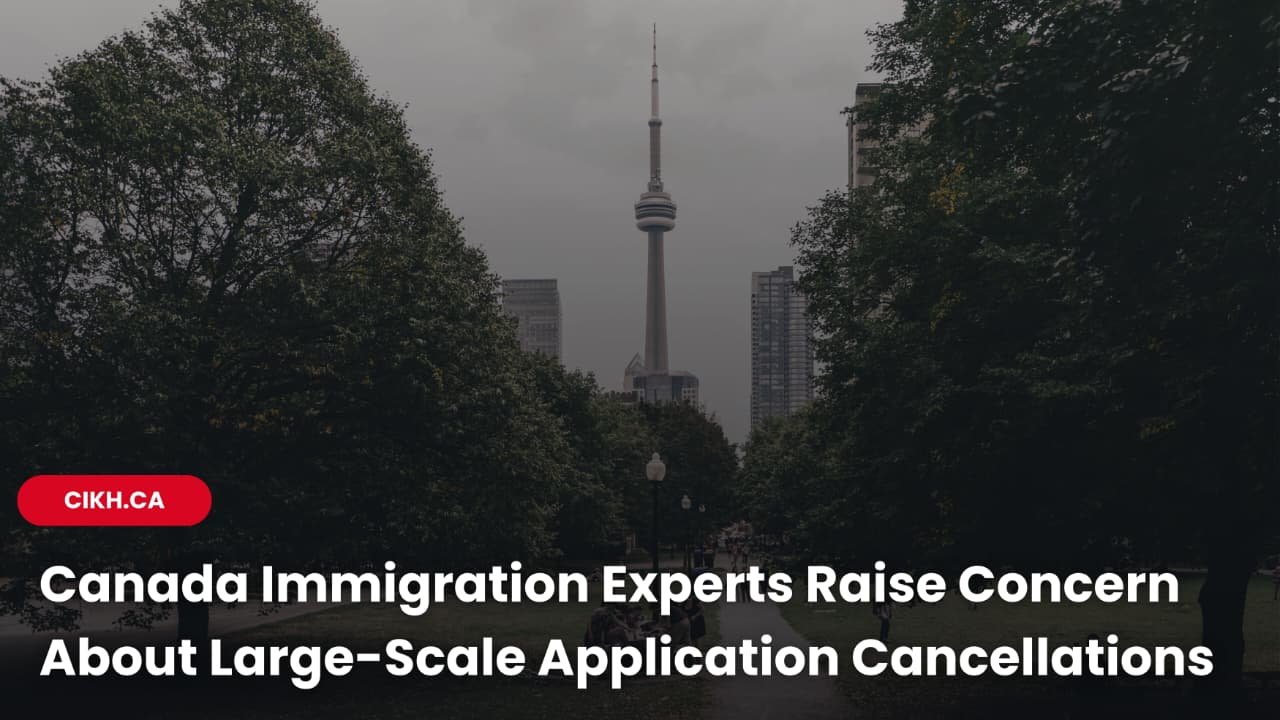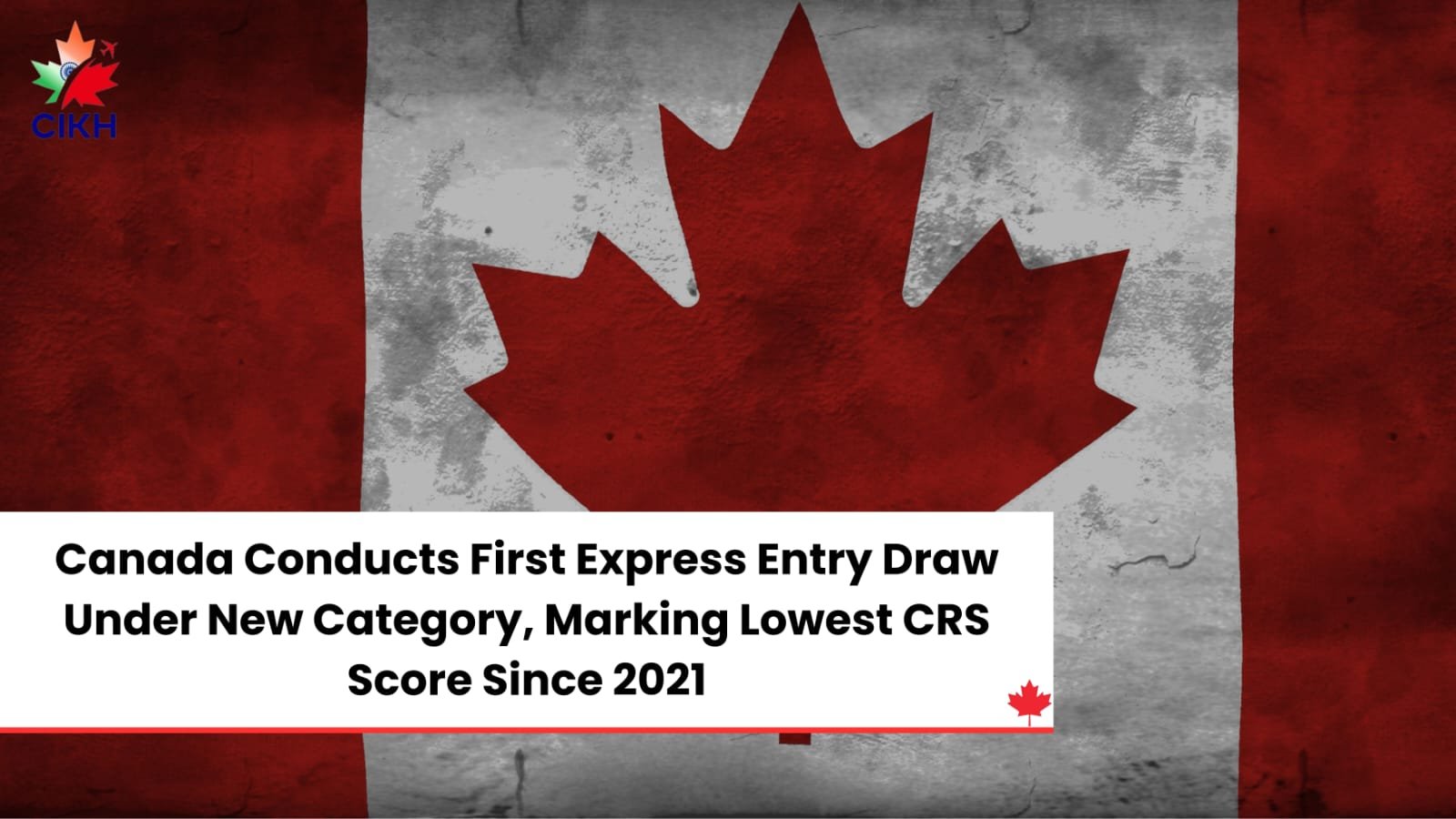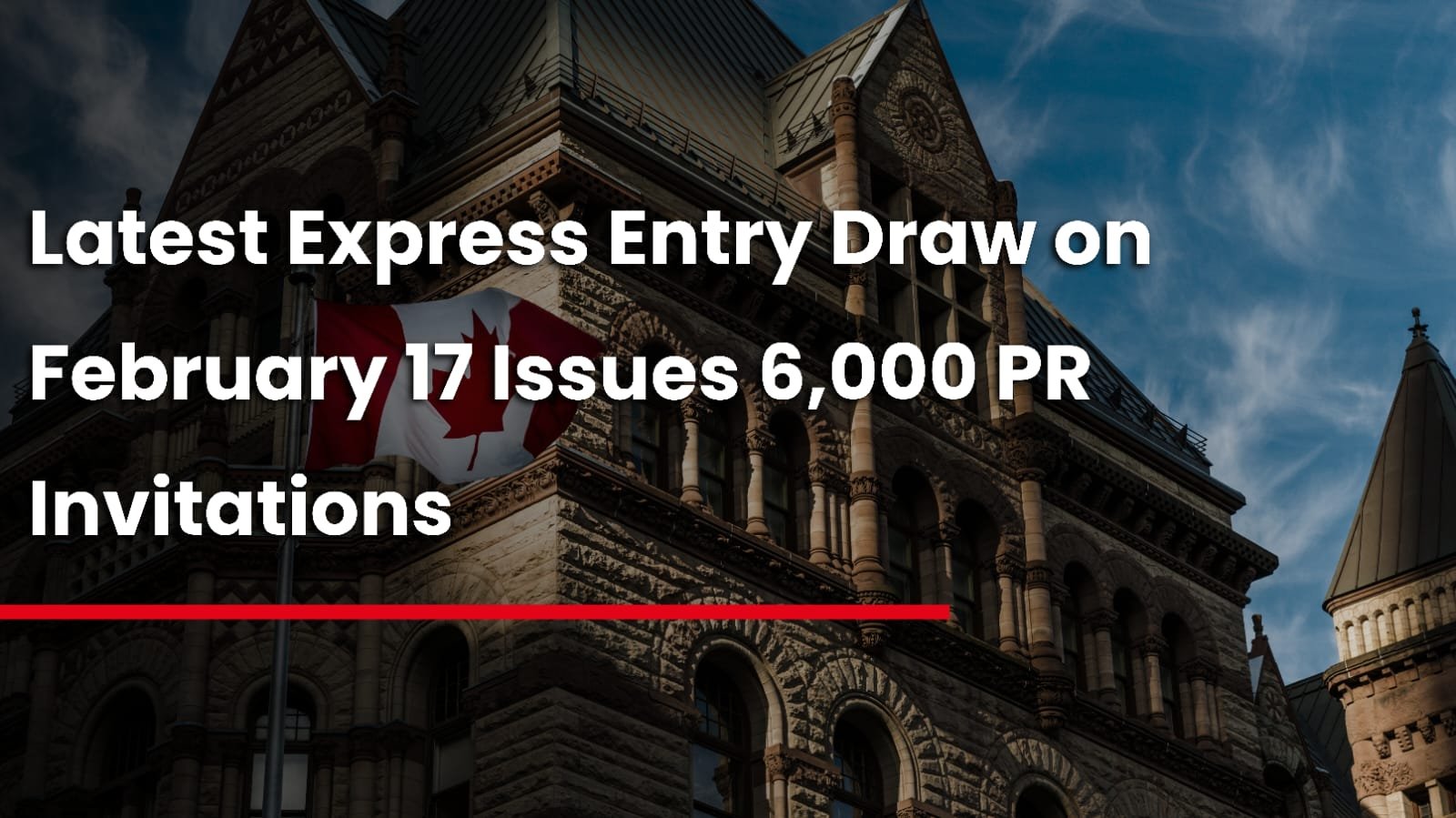In 2025, Canada’s immigration system is at one of its most critical points in years, facing a serious credibility test.
Both legal experts and applicants worry that the federal government may soon cancel a large number of pending immigration applications amid growing delays and increasing frustration.
Get a Legal Consultation on Applying for Proof of Canadian Citizenship
Well-known immigration lawyer Steven Meurrens has warned that the government appears to be preparing for mass cancellations through Bill C-12.
Bill C-12 is a new border security proposal that would give Immigration, Refugees and Citizenship Canada (IRCC) expanded authority.
“I think it is becoming more and more likely,” Meurrens said, adding that the department’s silence could be intentional.
“They might be quiet because the solution depends on Bill C-12, and they are aware of the panic and backlash this would cause.”
For tens of thousands of people who have waited for years, the idea of another legislative reset feels painfully familiar.
For critics, it confirms what months of data already reveal: IRCC is losing control of its processing system while quietly gaining new powers to erase its own backlog.
Backlogs Grow and Fears Increase
Processing times have worsened significantly across nearly every major immigration stream since May 2024, when IRCC data suggested some temporary improvement.
By October 2025, those improvements reversed, with the department acknowledging large increases in wait times in several areas.
The delays are not isolated problems but systemic.
Applications for citizenship that used to take eight months now take thirteen months. Family sponsorships that were already delayed have nearly doubled.
Even fast-track economic programs like the Atlantic Immigration Program have expanded from six months to thirty-seven months.
Temporary residents such as workers, students, and visitors face cascading delays.
Work permit renewals inside Canada, which took about three months in 2024, now take over seven months. Visitor visas for applicants from India have more than tripled in processing time.
Ottawa explains these increases as the result of “admission targets” and “capacity limits,” but this explanation raises more concern.
Lower intake targets mean fewer approvals and longer wait times, which is exactly the situation where powers to cancel applications become tempting.
The Numbers Behind the Problem
Some programs, like Humanitarian and Compassionate applications and Federal Self-Employed, are now labelled as taking “more than ten years,” which means IRCC cannot predict when they will be completed.
In programs linked to Canada’s economic priorities, this undermines their entire purpose.
Entrepreneurs under the Start-Up Visa face timelines measured in decades. Caregivers, essential for many families, wait nine years. Students risk losing academic years because study permit renewals are delayed.
Even Immigration Minister Lena Metlege Diab has admitted the system needs to be “restored to balance.” Yet Ottawa’s main response has been to lower admission targets instead of speeding up decisions.
IRCC’s own statistics from October 2025 show a clear rise in processing times since May 2024:
- Citizenship Grants: from 8 to 13 months
- Citizenship Certificates: from 3 to 8 months
- Spouse/Common-Law Sponsorships inside Canada (Non-Quebec): from 11 to 22 months
- Parents and Grandparents (Quebec): from 33 to 44 months
- Atlantic Immigration Program: from 6 to 37 months
- Start-Up Visa / Federal Self-Employed: from 37 to 120 months
- Work Permits inside Canada: from 92 to 223 days
- Visitor Visas from India: from 25 to 86 days
- Super Visas from India: from 51 to 167 days
These numbers represent thousands of families and businesses waiting much longer than before.
The government itself admits that backlogs remain large.
Could Canada Cancel Mass Applications?
The short answer is yes. The government has done this before.
In 2012, then-Immigration Minister Jason Kenney led a sweeping reset that cancelled about 280,000 Federal Skilled Worker applications filed before 2008.
Applicants who had waited years were suddenly told their files were gone.
The reason given was “modernization” — to clear backlogs and prepare for faster digital systems.
For many, this meant lost fees, broken dreams, and legal battles that ultimately failed.
In 2014, the government again cancelled investor and entrepreneur backlogs as part of new pilot programs.
This history is why Bill C-12 worries experts. If it passes, it would give the immigration minister the power to do something similar again in the name of efficiency.
IRCC says these powers would not target specific groups, but the 2012 precedent makes that hard to believe.
Back then, the government said the cancellations were to focus on applications that could be processed faster.
Today, the language is similar: “restoring balance,” “streamlining processing,” and “managing capacity.”
The pattern is clear: a government overwhelmed by delays, promising modernization, quietly preparing legal authority to clear the backlog.
Historical Impact and Human Costs
The 2012 cancellations left lasting damage to Canada’s reputation.
Applicants from countries like India, China, the Middle East, and Europe who spent years preparing documents and funds found their efforts wiped out.
Many had passed initial checks and were just waiting for final approval when their files disappeared.
Civil society and lawyers argued this undermined fairness and the rule of law.
If the government can erase pending cases unilaterally, no applicant can trust Canada’s immigration promises.
Now in 2025, that fear is growing again.
Online communities for students and workers are full of speculation about cancellations if Bill C-12 passes.
What makes this worse today is the scale.
IRCC’s backlog is far larger than in 2012, covering millions more files and including many people already inside Canada on temporary permits.
For these individuals, after years of following the rules and contributing, the question is frightening: could their applications simply disappear?
The Political Context
Behind the administrative talk is a political strategy.
Canada’s immigration levels plan for 2026-2028 calls for modest reductions in permanent resident targets after record arrivals in recent years.
The government says this is necessary to manage housing and affordability issues.
But cutting targets without lowering applications only makes wait times longer.
This puts the governing Liberals in a difficult position: they are criticized for both welcoming too many newcomers and processing them too slowly.
Having a power to cancel large numbers of applications offers a quick fix to reset the system before the next election.
Critics say Bill C-12 is not just bureaucratic housekeeping but a political safety valve to control numbers when promises exceed results.
Minister Diab’s office highlights transparency by publishing processing data as a sign of accountability.
But applicants say transparency without action is meaningless. Wait times continue to rise while Ottawa mainly posts the numbers online.
The Human Toll of Waiting
Behind every number is a family waiting for a decision that never arrives.
Spouses waiting under inland sponsorship face nearly two years apart or limited access to benefits.
Parents and grandparents face nearly four years of uncertainty.
Students risk losing their places at school when permit renewals are delayed past semester start dates.
Employers across sectors lose international hires because work permits arrive months late, disrupting projects and hurting competitiveness.
For those inside Canada, living year to year on temporary status causes anxiety, financial stress, and a sense of exclusion.
What was once a fast, efficient immigration system now feels like a lottery won by luck or scam, not merit.
Even pilot programs like the Home Care Worker or Agri-Food Pilot have backfired, with processing times stretching from nine to nineteen years.
The greatest irony is that backlogs work against immigration goals.
Canada needs workers, students, and families to support its economy and population, yet the system drives them away.
Legal Uncertainty
Legal experts point out that Bill C-12 creates unclear ministerial powers.
It would allow the immigration minister to suspend, delay, or cancel whole categories of applications if they conflict with “public interest” or “operational needs.”
These terms are vague.
Without clear limits, critics worry this power could be applied broadly — affecting humanitarian, family, or skilled worker categories without parliamentary review.
IRCC says the powers won’t target groups and won’t be used unilaterally, but the language echoes past resets, fueling skepticism.
If cancellations happen again, more lawsuits are likely.
In 2012, a class-action lawsuit over backlog cancellations was dismissed, with courts ruling Parliament has the authority to erase pending files.
If Bill C-12 passes, history could legally repeat itself.
What the Minister Says
Minister Lena Metlege Diab insists IRCC is committed to transparency and responsible management.
Her communications director says publishing processing data was intentional and part of being open.
Diab says the government is working to “restore balance” through capacity building, modernization, and better forecasting.
Yet for applicants, longer wait times without improvement feel like failure.
Lower admission targets mean fewer approvals even as applications rise, which many see as rationing, not balance.
Rebuilding trust requires more than words. Applicants want shorter waits, consistent service, and guarantees their applications won’t vanish due to new laws.
Possible Solutions
Fixing this crisis requires political courage and administrative focus.
Experts recommend:
- Temporary intake pauses in areas with large backlogs to prevent worsening delays
- Increasing staffing and investing in technology like AI and decentralized case management
- Legal protections to stop retroactive cancellations once applications are accepted
- Simplifying overlapping pilot programs to reduce complexity and resource strain
Without decisive changes, IRCC risks continuing from one crisis to the next, reacting instead of reforming.
Editor’s Perspective on the Future
Delays and legislative changes suggest 2026 could be a turning point.
With reduced admission targets and Bill C-12 moving forward, the government seems set for fewer newcomers, tighter control, and legal powers to erase backlogs.
Public trust, already fragile, would suffer more.
Potential applicants may hesitate to invest time and money in a system that could delete their files overnight.
At the same time, slower approvals will deepen labour shortages, stall family reunifications, and pressure provinces relying on newcomers.
To keep economic growth and moral standing, Canada needs structural reform, not quick fixes.
This means investing in capacity, ensuring fairness, and promising that once you apply honestly, your place in line is protected.
Until that promise returns, Canada’s immigration crisis is not just a backlog of applications but a backlog of broken trust.





